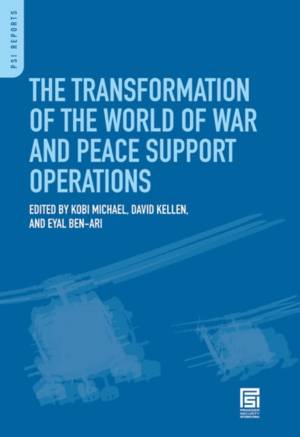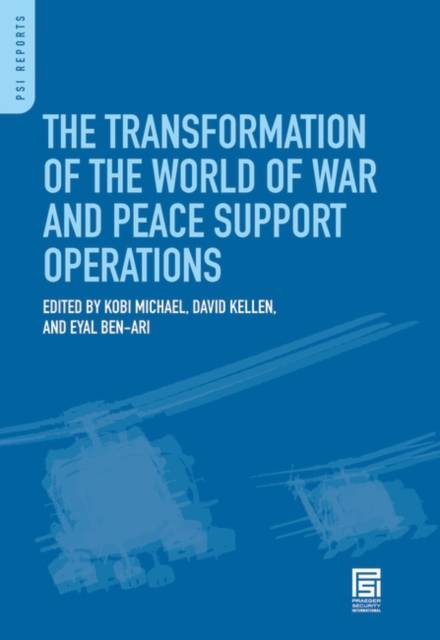
- Retrait gratuit dans votre magasin Club
- 7.000.000 titres dans notre catalogue
- Payer en toute sécurité
- Toujours un magasin près de chez vous
- Retrait gratuit dans votre magasin Club
- 7.000.0000 titres dans notre catalogue
- Payer en toute sécurité
- Toujours un magasin près de chez vous
The Transformation of the World of War and Peace Support Operations
Kobi Michael, David Kellen, Eyal Ben-AriDescription
With the end of the Cold War, the euphoria of the Gulf War of the 1990s and the avowal of a New World Order, peace-operations were declared as the recipe for a better world through international intervention in conflict arenas. However, the debacles and failures in Cambodia, Somalia, or the Balkans led to disillusionment and a sense of strategic helplessness among leaders, experts and scholars in the industrial democracies. While these arguments have been the focus of intense criticism and discussion, they nevertheless underscore the fact that since the end of the Cold War the armed forces of the industrial democracies have undergone very significant transformations. This is the first work linking the changes in armed forces to Peace Support Operations (PSOs), those operations with major state-building components that demand broad and coherent cooperation between military forces and civilian entities.
The Transformation of the World of War and Peace Support Operations is timely as the recent debates over PSOs continue to take center stage. This work embodies a new set of ideas and concepts that aid in grasping and interpreting the transformations taking place in the world of war and in PSOs. It seeks to understand how social, economic, political, and organizational transformations around the globe are related to the complex links between armed forces and PSOs. Additionally, this work addresses issues that continue to define the character and makeup of modern warfare and the missions of PSOs for coming decades.Spécifications
Parties prenantes
- Auteur(s) :
- Editeur:
Contenu
- Nombre de pages :
- 232
- Langue:
- Anglais
- Collection :
Caractéristiques
- EAN:
- 9780313365010
- Date de parution :
- 20-03-09
- Format:
- Livre relié
- Format numérique:
- Genaaid
- Dimensions :
- 161 mm x 237 mm
- Poids :
- 476 g

Les avis
Nous publions uniquement les avis qui respectent les conditions requises. Consultez nos conditions pour les avis.






